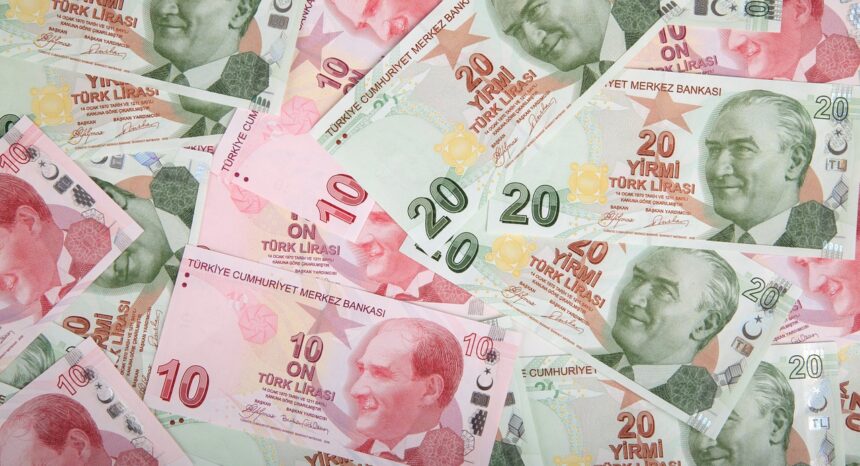Every year, foreign governments and other overseas entities spend about half a billion dollars trying to influence American policy, according to the Project on Government Oversight. The Foreign Agents Registration Act (FARA) enables researchers to track their spending and sway. The federal law was adopted in 1938 when Congress was worried about Nazi propaganda in the United States; it was updated in 1966 to cover activities more broadly political. Today under FARA, which is run by the U.S. Department of Justice, lobbyists and other organizations are required to regularly declare their relationships with foreign principals, their meetings, payments, as well as the informational materials they use to influence policy makers, such as presentations, email correspondence, even draft legislation. Much of the documentation is available on the FARA website, though there are holes in both the legislation and implementation.
Here are a few key terms for those writing about foreign lobbying from the Sunlight Foundation, a nonpartisan group:
The “Foreign Agent” also called, the “Registrant”, is the individual or organization enlisted to represent a foreign interest in the United States. These individuals or entities are sometimes, but not always, lobbyists. They can also be public relations firms, tourism organizations or business associations, among other things.
The “Client” is the foreign interest being represented. Sometimes foreign entities can represent themselves. In those cases the client and the lobbyist are the same entity in the data.
Things for journalists to watch out for:
FARA’s website defines “foreign principals” to include “foreign political parties, a person or organization outside the United States, except U.S. citizens, and any entity organized under the laws of a foreign country or having its principal place of business in a foreign country.” But some business-related exemptions enable giant holes in FARA reporting requirements. “Persons whose activities are of a purely commercial nature,” are not required to register. There are many ways to hide lobbying, cautions one long-time investigative reporter: “The foreign players really looking to influence DC have more sophisticated games than simply registering lobbyists.”
In December 2014, the Project on Government Oversight (POGO)—a non-partisan group that often testifies before Congress—detailed loopholes in the legislation and lamented lax oversight: “We found a pattern of lax enforcement of FARA requirements by the Justice Department. We found that the Justice Department office responsible for administering the law is a record-keeping mess. And we found loopholes in the law that often make it difficult if not impossible for the government to police compliance or to discipline lobbyists who fail to comply.”
Among other things, POGO found almost half of required documents are filed late; lobbying materials are often filed without information about when they were used or they were not filed at all. Though federal law bans foreign funding of U.S. political campaigns, there is another gray area: POGO “found many instances in which members of lobbying firms made political contributions to members of Congress on the same day that those firms were lobbying the members of Congress or their legislative staffs on behalf of foreign clients.”
It’s important to note that FARA depends on voluntary compliance and the Justice Department rarely pursues foreign agents who have not submitted their reports. Agents are required to submit reports biannually (the dates depend on the original registration date) and any informational materials (except some involving tourism) within 48 hours.
When they are uploaded, materials are available on the FARA website within 24 hours. The materials date back to 1991 and appear as downloadable PDFs.
Because not everything is available on the FARA website — and because it can be difficult to sort through the government’s online archiving — here are some other resources:
Watchdog organizations:
POGO’s online Foreign Influence Database uniquely stores online the promotional and propaganda materials foreign agents use to attempt to influence. Established in 2014, the project covers four years of materials POGO scanned one-by-one. To see other documents from a wider period, journalists must go in person to the Justice Department between 11 a.m. and 3 p.m. weekdays.
The Sunlight Foundation’s online “Foreign Influence Explorer” sifts through FARA data and information from other U.S. government agencies. It is sometimes easier to use than the FARA database. Bulk data is available in spreadsheets that are easier to mine. This project also includes searchable information on proposed American arms sales to foreign countries.
The Center for Responsive Politics, another non-partisan Washington watchdog, runs opensecrets.org. The award-winning site offers an easy-to-use database of lobbying activities, searchable by client and industry, though it is not as detailed as some other databases.
Other government resources:
Call FARA. The people there are helpful by phone and know all the ins and outs of the system. Note the short working hours.
The U.S. Senate and House of Representatives websites offer more on foreign agents’ activities as required under the Lobbying Disclosure Act (LDA) of 1995. Though these records often duplicate the work of FARA, comparing registers filed in Congress and at the Justice Department can occasionally reveal small clues or unintentional disclosures. The LDA includes far more on domestic lobbying. (More about the requirements on the Senate and House websites.)
If something is missing, try submitting a FOIA at the Justice Department.
Other resources:
The European Union has its own database of entities seeking to influence policy in Brussels.
Keywords: corruption, influence peddling, foreign lobbying, international influence


Expert Commentary